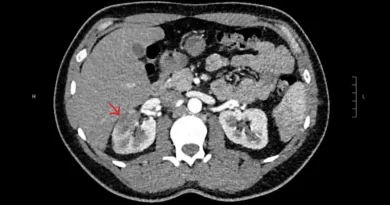Blood Clots after Surgery
Surgery is a major risk for blood clots. The immobility and the injury from the surgery come together to cause clotting. So, pulmonary embolism and deep vein thrombosis after surgery are common. Preventing these clots from happening is the best approach. But, once the clots to happen early diagnosis and treatment are key.
Why is Surgery a Risk for Blood Clots?
The main reasons for blood clots are immobility, injury and a tendency to clot. Together, these reasons are called Wirchow’s triad. Surgery is the perfect storm as far as these risks are concerned:
- Immobility – During and after surgery many people are mostly immobile. This immobility also affects blood flow. In fact, without proper leg motion blood will stagnate in the legs.
- Injury to blood vessels – Surgery is a type of injury. During surgery, many blood vessels are injured. This exposes their inner layers, which are prone to clotting.
- Clotting tendency – This is also called hypercoagulability. Sometimes surgery is for conditions that cause a tendency for clotting. For instance, cancer. Other times, the surgery and the healing process cause inflammation. It is well known that inflammation is a risk for clotting.
Preventing Blood Clots after Surgery
Because we know that surgery is a risk for blood clots, we should make every effort to prevent the clots from happening. While this is not always possible, we should always try.
When a clot develops around surgery, it will usually happen during the procedure itself. For this reasons, prevention should start during the procedure. Then, there are ways to prevent clots during recovery.
Preventing Clots During Surgery
During surgery patients are positioned in such a way that the surgeon can perform the operation. Proper positioning is key. But, when patients are positioned, sometimes inadvertently there is pressure on areas of the body such as the arms or legs. This pressure can prevent proper blood flow and this can result in a clot. For this reason, proper patients positioning is key to prevent clots.
Also during surgery, it is sometimes possible to apply sequential compression devices to the legs. These devices inflate and deflate. This will result in better blood flow. Also, the pumps increase release of a substance called tissue plasminogen activator, which is an internal mechanism the body has to prevent clots.
Preventing Clots After Surgery
After surgery patients should try to move around as soon as possible. Gone are the days when people were told to remain in complete bedrest. That was silly. Bedrest used to result in more infections and in more clots.
Next, often after surgery patients receive a low-dose of a blood thinner for a period of time. Sometimes this blood thinner is aspirin. Other times it is heparin or a blood thinner from the DOAC family of blood thinners.
Treatment
People who develop blood clots after surgery should receive blood thinners. These medications will prevent more clots from forming and will prevent clots in the legs from going to the lungs.
Most people who develop blood clots after surgery do not have a particularly high tendency to clot. Practically, this means that once they receive treatment for a few months, they can usually stop taking the blood thinners. The risk of the clots recurring after they stop taking the medication is going to be low.
Inferior Vena Cava Filters
The best treatment of blood clots is with blood thinners. But, after surgery, not everyone can receive blood thinners. This is because blood thinners might cause unwanted bleeding. After surgery, this can be a particularly relevant problem.
An inferior vena cava filter is a small mesh that is supposed to prevent clots from traveling from the legs to the lungs. If someone develops a blood clot, but cannot receive blood thinners, an inferior vena cava filter might be the correct solution. Some patients who develop clots after surgery will need an inferior vena cava filter until they are able to receive blood thinners. Then, the filter should be retrieved as soon as possible. There is no use for both blood thinners and a filter.





Pingback: Surgery and Blood Thinners: A Practical Approach
Pingback: Blood Clots in Legs: Causes, Diagnosis and Treatment
Pingback: Superficial Thrombophlebitis: Definition, Causes and Treatment
Pingback: Thrombophilia Testing: What is it? Should we test?
Pingback: Cancer and Blood Clots: Epidemiology, Mechanism and Implication